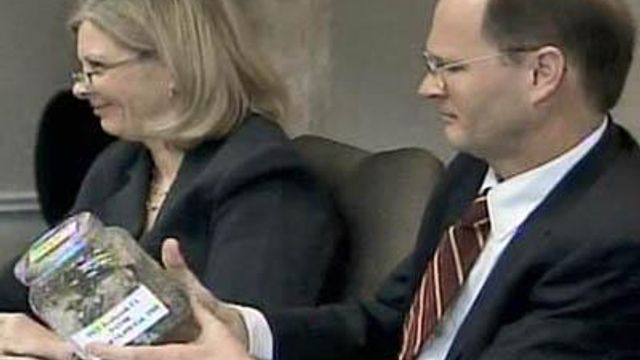Panel Urges Disposal of Disposal Ban
A City Council committee voted unanimously Tuesday to recommend Raleigh scrap its 3-week-old ban on garbage disposals.
Posted — UpdatedThe Budget and Economic Development Committee agreed to review the ordinance, which has drawn fire from residents, builders and disposal manufacturers since the council passed the measure a month ago.
The full council would have to vote to rescind the ban at its meeting next week.
City officials backed the disposal ban – it's among the first nationwide – because they said food scraps and other debris clog municipal sewer lines, causing overflows that are costly to repair and that could potentially harm the environment.
Officials also said using disposals wastes about 500,000 gallons of water a day throughout the municipal water system.
Under the ban, homeowners can continue to use existing disposals, but no new devices can be installed and existing ones can't be replaced when they quit working. The ban also applies to Wake County customers on septic systems, but officials said homes that have obtained city permits and are already under construction can keep their disposals.
Jerry Ryder, the president of disposal manufacturer InSinkErator, who flew to Raleigh from Wisconsin last month to lobby for a repeal of the ban, brought reinforcements Tuesday to support his effort.
Kevin Keener, a Purdue University professor of food science, and Kendall Christiansen, a member of New York City's recycling advisory board, both told Raleigh council members that there was no link between ground-up food scraps and clogged sewer lines.
"My opinion is, the food particles, I do not think play significant role in the formation of these blockages," Keener said, blaming most clogs on congealed grease, fats and oils.
Some council members said Tuesday that they felt they didn't have all of the facts when they voted for the ban on March 4.
Dale Crisp, director of the city's Public Utilities Department, passed around a jar of hardened sludge he said was responsible for a recent sewer overflow. But he acknowledged in response to questions from the council that his request for the ban was based not on any scientific research but only on visual evidence of what crews were finding in sewer lines.
Grease is the main cause of sewage spills in Raleigh, officials said, followed by debris likes sticks, rocks and household items in the sewer lines. Structural damage, tree roots and heavy rains round out the top five causes, officials said.
• Credits
Copyright 2024 by Capitol Broadcasting Company. All rights reserved. This material may not be published, broadcast, rewritten or redistributed.






